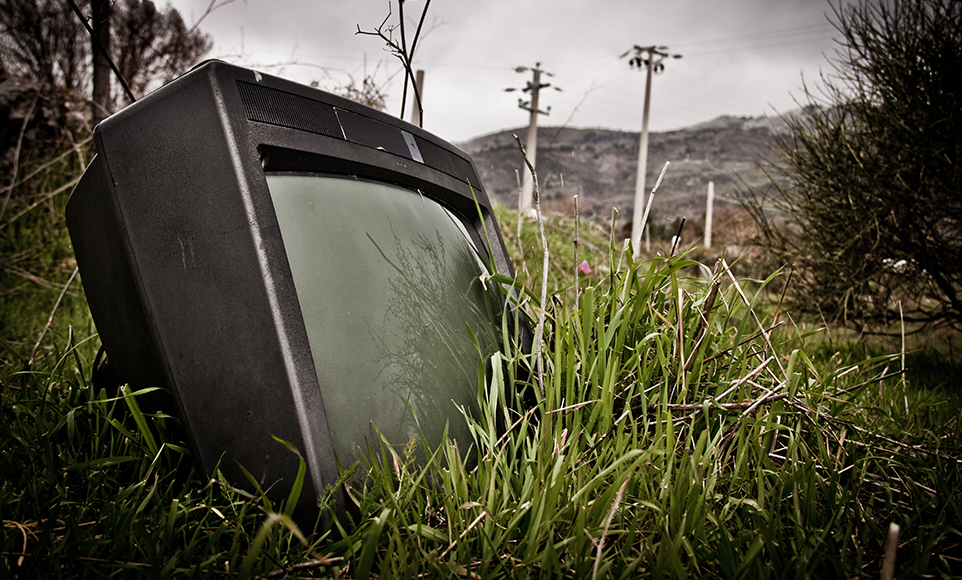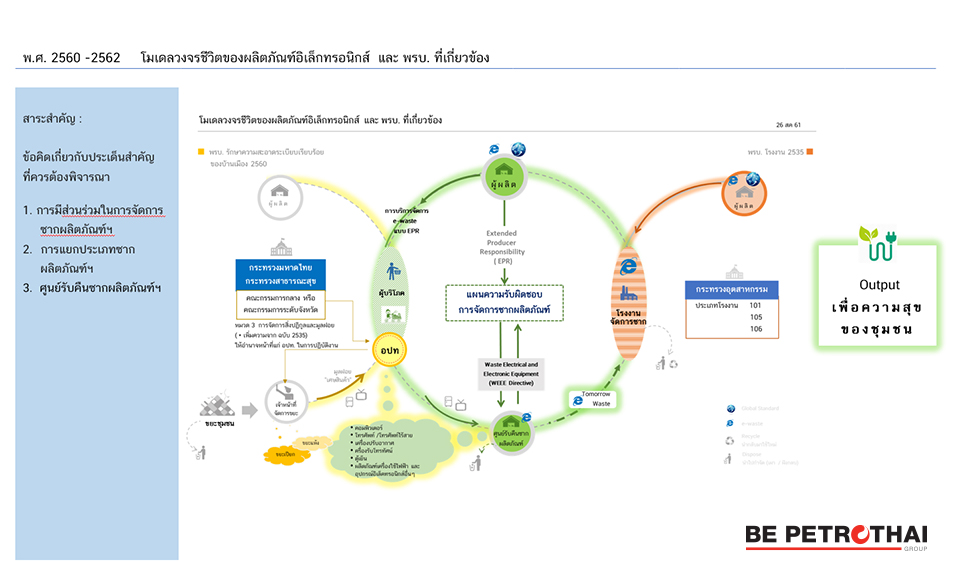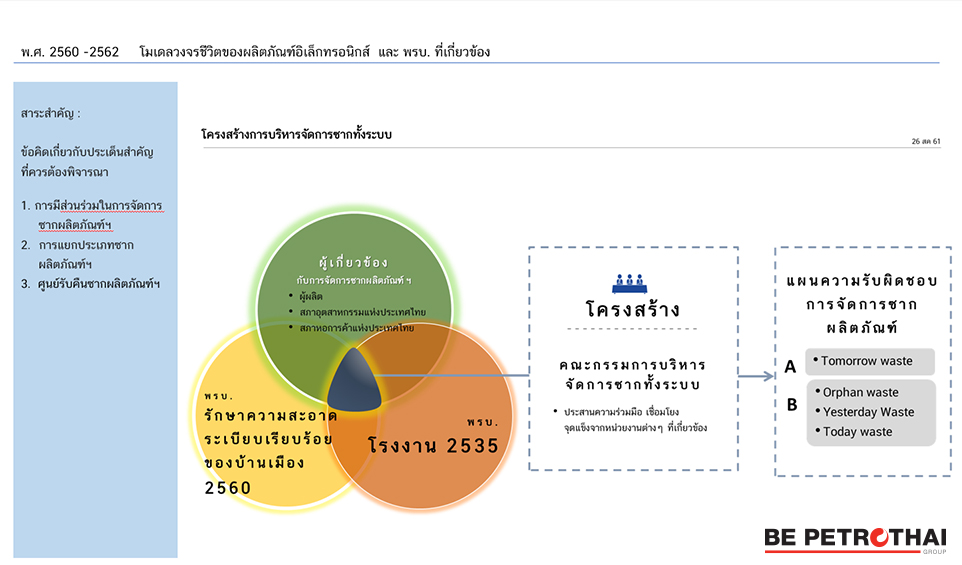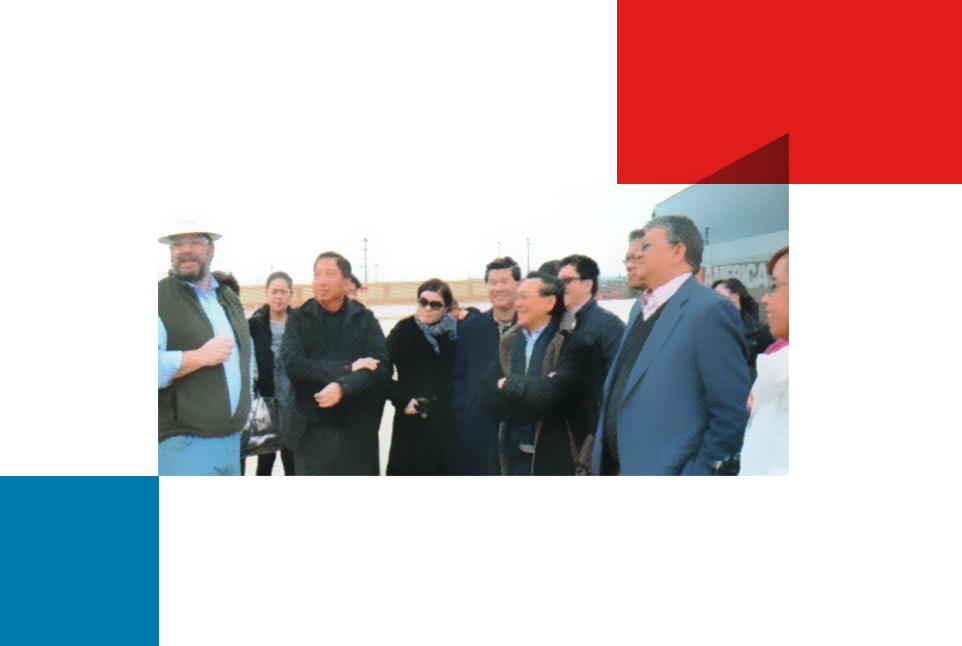


Waste from Electrical and Electronic Equipment (WEEE), commonly known as e-waste, has become a major environmental issue in Thailand. The advancement in technology also requires proper WEEE management in disposal and returns. This leads to chemical and heavy metals contamination in the environment that causes direct health concerns.
Mr. Kitja Chamnongarsa, a BE Petrothai Group founder, envisages that e-waste is a vital environmental issue. He has taken part as a member of the Subcommittee in the evaluation and drafting process of the Electrical and Electronic Equipment Waste Disposal Act. He comprehended the e-waste issue and demonstrated models that displays the life cycle of electronic products in relation to acts of legislation.


This includes pushing for a clear establishment in the management of e-waste to help preserve the environment, mainly to protect Thailand’s environment from the dangers of heavy metals both in the short term and in the long run. There are essential ideas that need to be considered as follows.
The most valuable part of solving the problem is to be involved in all processes, along with Extended Producer Responsibility (EPR). This is how the manufacturer is responsible for the costs of waste management. Such responsibility will push producers to design environmentally friendly products, mainly by decreasing the use of harsh chemicals and designing products that are recyclable. This truly supports sustainable production and consumption.

Waste classification will help management to be systemized, effective, and helps release the burden from the government and businesses.
The waste return center is an important mechanism in delivering waste to the waste disposal factory. The government or responsible sectors should have a part in planning each process and to keep watch, this includes local management to provide waste return center.
Environmental issues require immediate action. All related sectors need to bring out their strong points and work together in preventing e-waste that has led and heavy metals from affecting the health of citizens, the ecosystem, and our planet.











